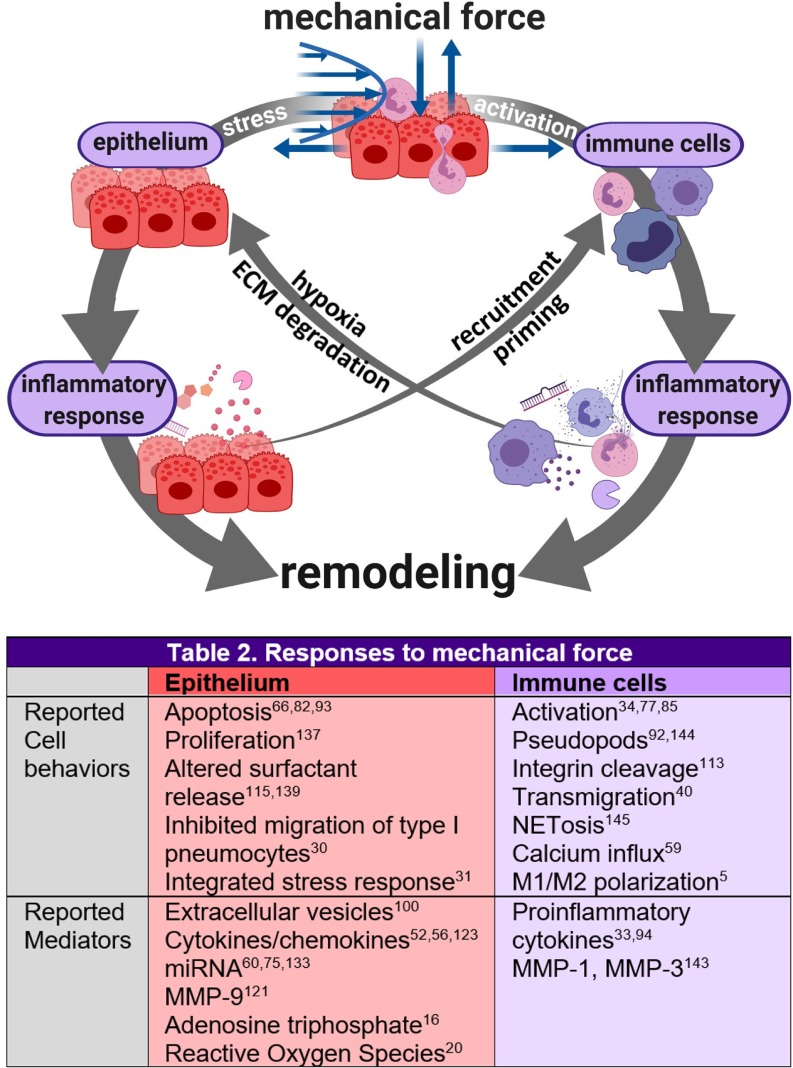FIG. 5.
Reported mechanical stress-induced cell behaviors and inflammatory mediators that enable cross talk between pulmonary epithelium and immune cells. Mechanical stresses due to surfactant dysfunction, edema, and mechanical ventilation cause the epithelium to produce inflammatory and fibrotic mediators107,130 and may induce the integrated stress response, a key mediator of mechanical stress-induced epithelial injury.31 Mechanical force-induced cell behaviors and mediators of cross talk between the epithelium and immune cells are listed in Fig. 5. Such cross talk drives remodeling pathways; for example, hyperactivated neutrophils deplete oxygen in their microenvironment through the excessive production of reactive oxygen species (ROSs). This hypoxia stresses the epithelium and leads to apoptosis or inflammatory signaling that promotes fibroblast activation and epithelial proliferation. Neutrophils also contribute directly to remodeling during epithelial transmigration;12 massive neutrophil influx compromises tight junction integrity and stimulates repair of the lamina propria.146 Mechanically activated neutrophils and alveolar macrophages also secrete proteases that degrade the extracellular matrix (ECM), such as neutrophil elastase, and promote continued ECM destruction and activation of fibroblasts to repair the ECM damage.27,44,124 Because neutrophils are significant drivers of this destructive remodeling cycle, they are a target of therapeutic research.120

